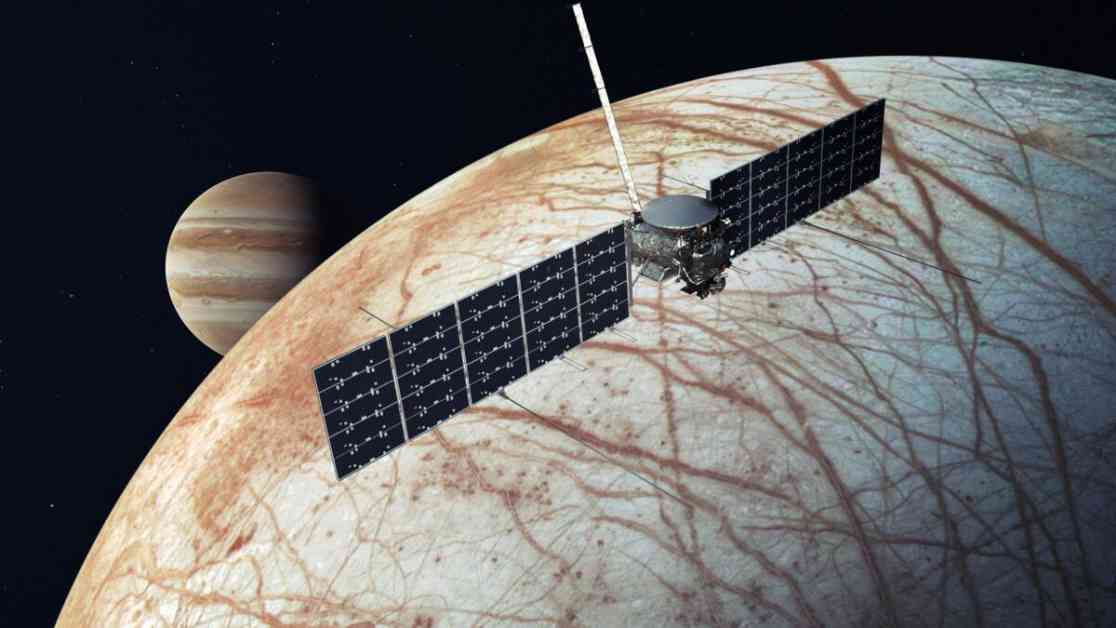NASA’s Europa Clipper mission has officially begun its journey to Jupiter’s moon Europa, thanks to a successful launch aboard a SpaceX Falcon Heavy rocket from Cape Canaveral, Florida. This mission aims to explore the icy moon and search for signs of alien life, marking a significant milestone in space exploration.
The Europa Clipper probe will travel 1.8 billion miles over the course of five-and-a-half years to reach Jupiter. Along the way, it will receive a gravity assist from Mars before swinging back around Earth in late 2026. The spacecraft is scheduled to arrive at Jupiter in 2030, where it will spend over four years gathering valuable data about Europa.
One of the key goals of this mission is to study Europa’s subterranean global ocean, which scientists believe could harbor the conditions necessary for alien life to exist. With water, heat from Jupiter’s gravitational forces, and potentially organic compounds present, Europa is considered a prime candidate for hosting extraterrestrial life.
Throughout its mission, the Europa Clipper will conduct numerous flybys of Europa, using its advanced scientific instruments to analyze the moon’s ocean dynamics and search for organic compounds. This data will provide valuable insights into the potential habitability of Europa and pave the way for future exploration missions.
The $5-billion Europa Clipper mission was developed by NASA’s Jet Propulsion Laboratory and represents the largest planetary probe ever constructed by the space agency. To launch the spacecraft, SpaceX utilized its powerful Falcon Heavy rocket, which provided the necessary thrust to propel the Clipper towards Jupiter.
While SpaceX typically aims to recover its rocket boosters, in this case, they were expended to ensure the successful launch of the Europa Clipper. The fairings that shielded the spacecraft during its ascent will be retrieved for future use, demonstrating the commitment to sustainability in space exploration.
Experts in the field of planetary science and exploration have praised the advancements in rocket technology that have enabled missions like Europa Clipper to become a reality. The availability of heavy-lift rockets like the Falcon Heavy has significantly expanded the capabilities of space agencies and opened up new possibilities for scientific discovery in the outer reaches of our solar system.
Overall, the successful launch of the Europa Clipper represents a major milestone in our understanding of Jupiter’s moon Europa and the potential for finding alien life beyond Earth. This mission will undoubtedly contribute valuable data to the scientific community and pave the way for future exploration efforts in our quest to unravel the mysteries of the cosmos.



























